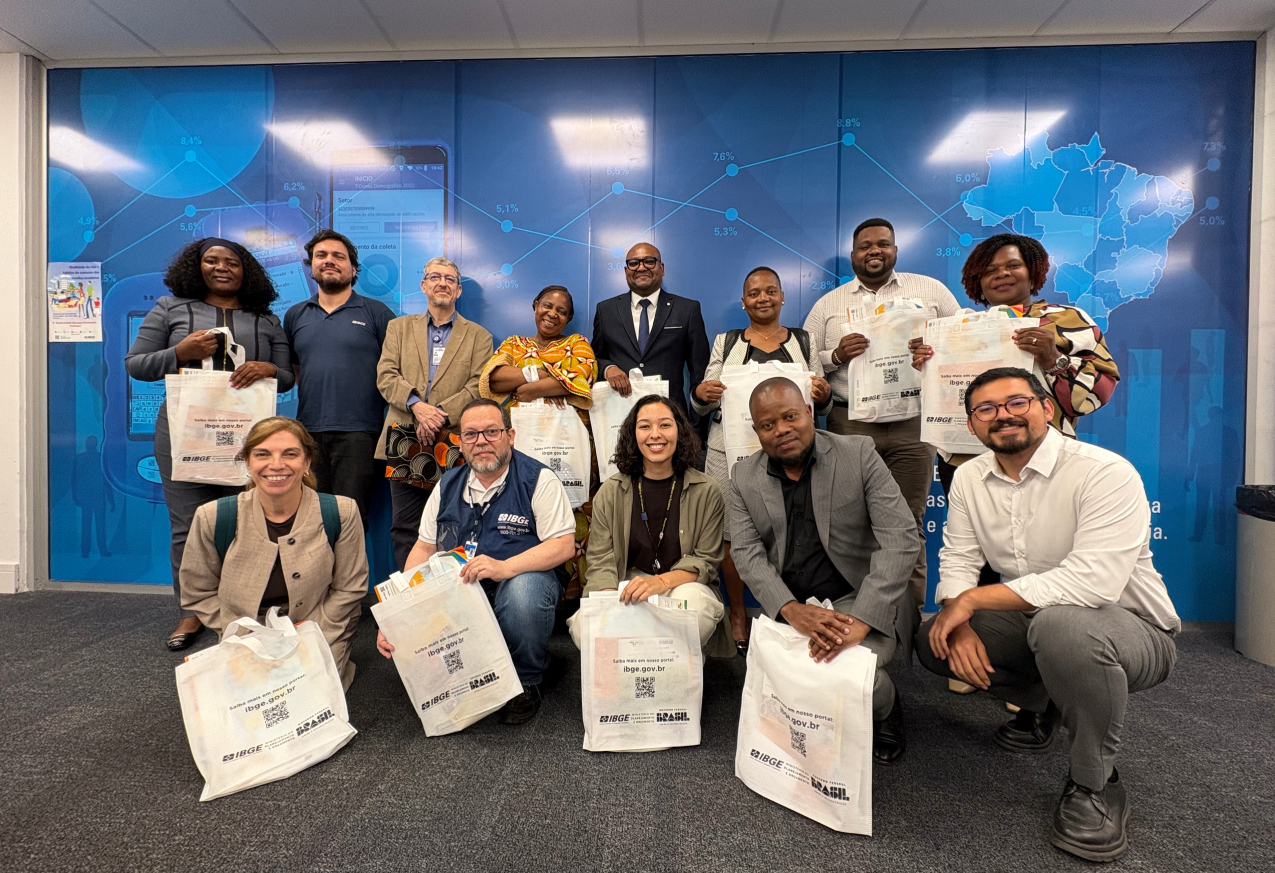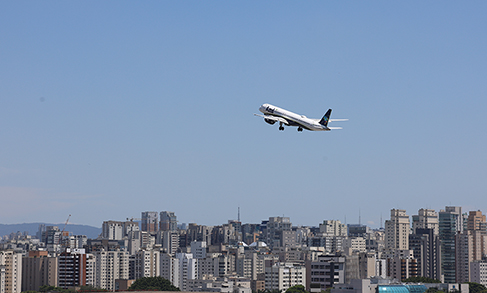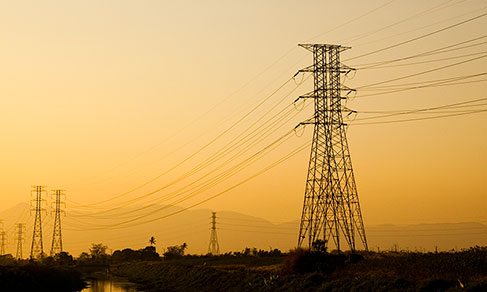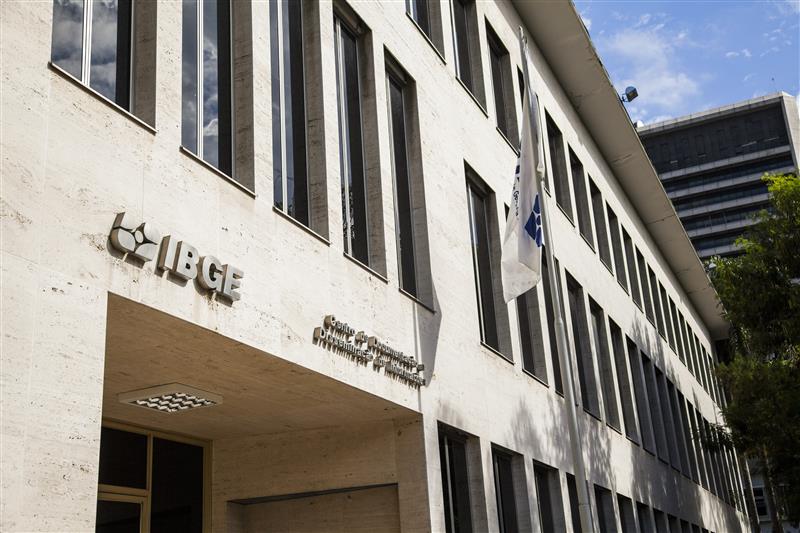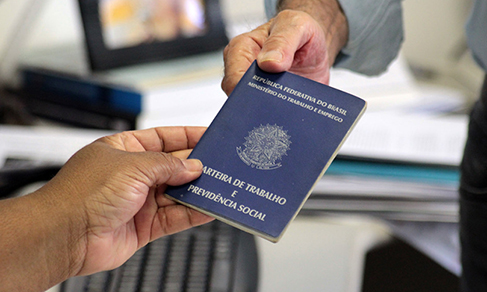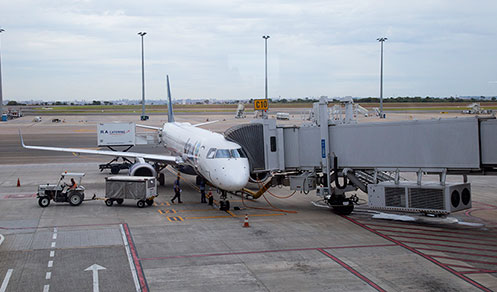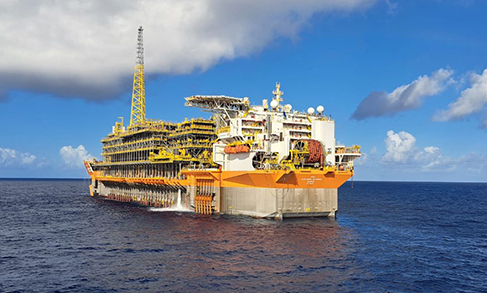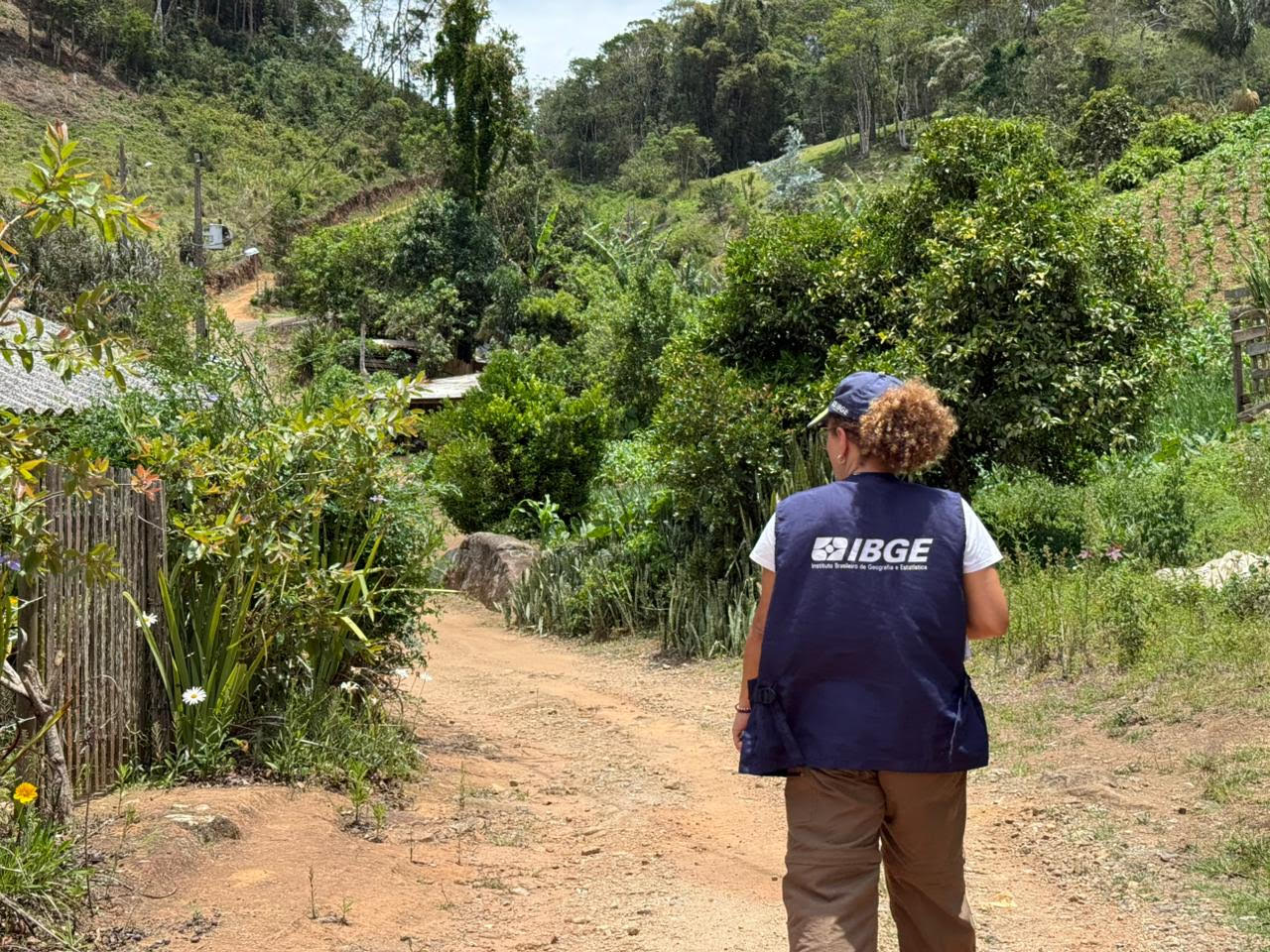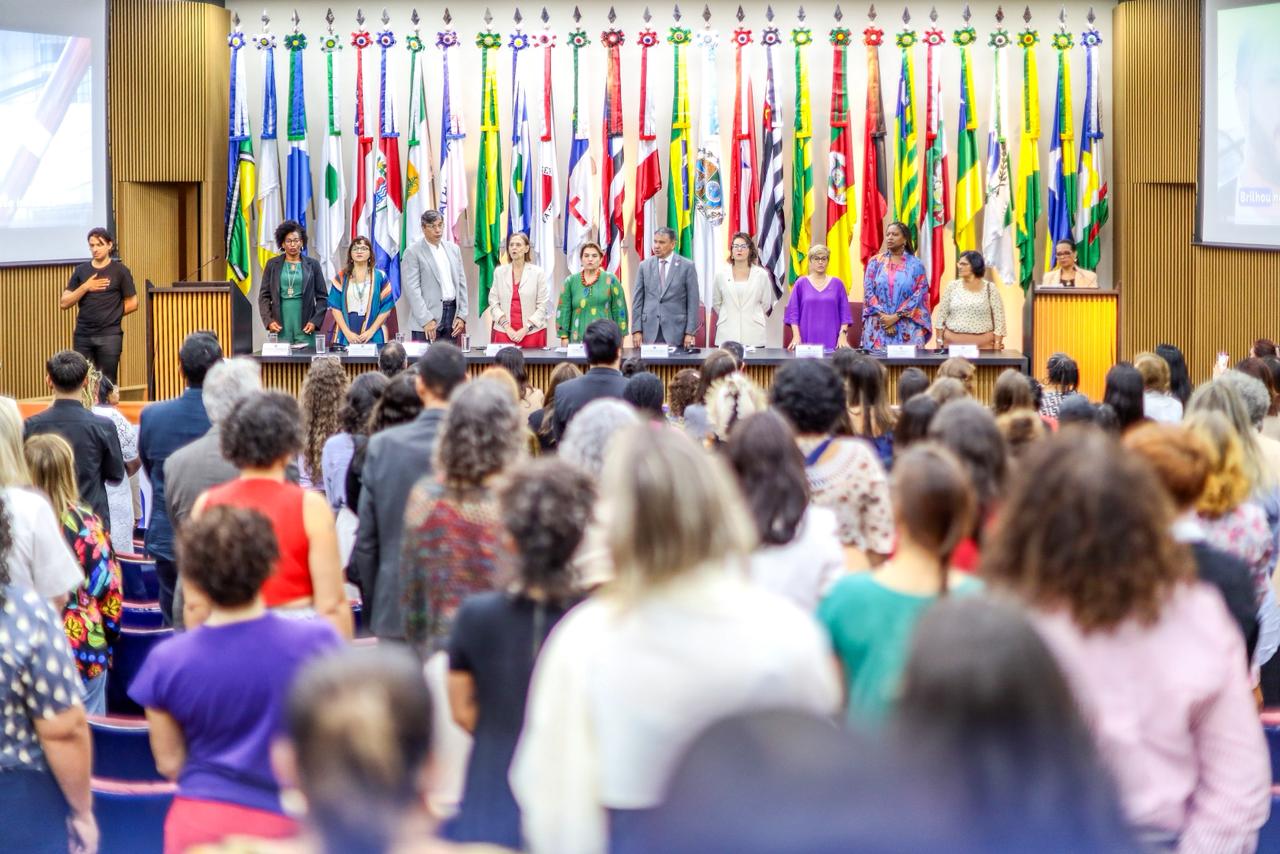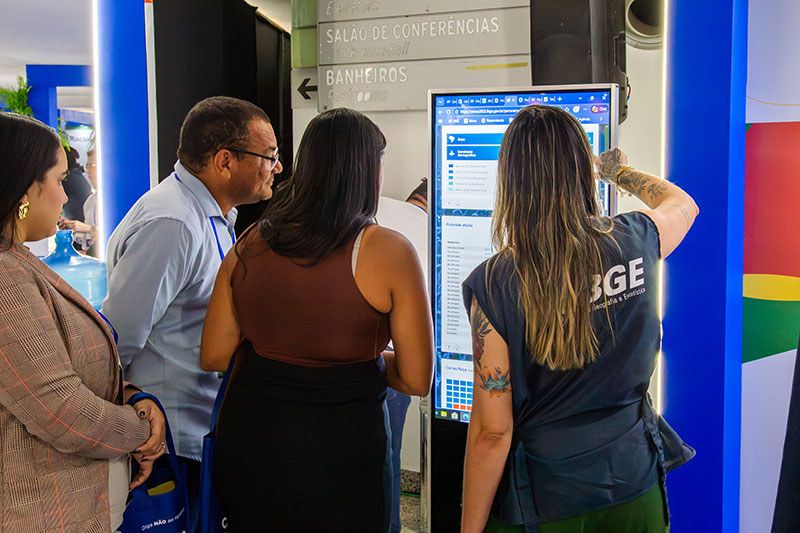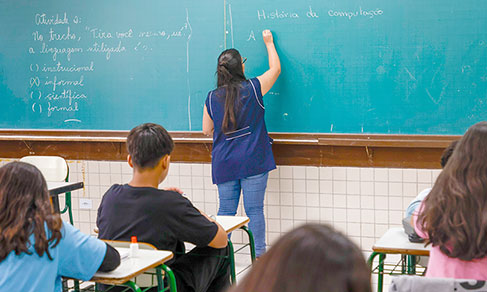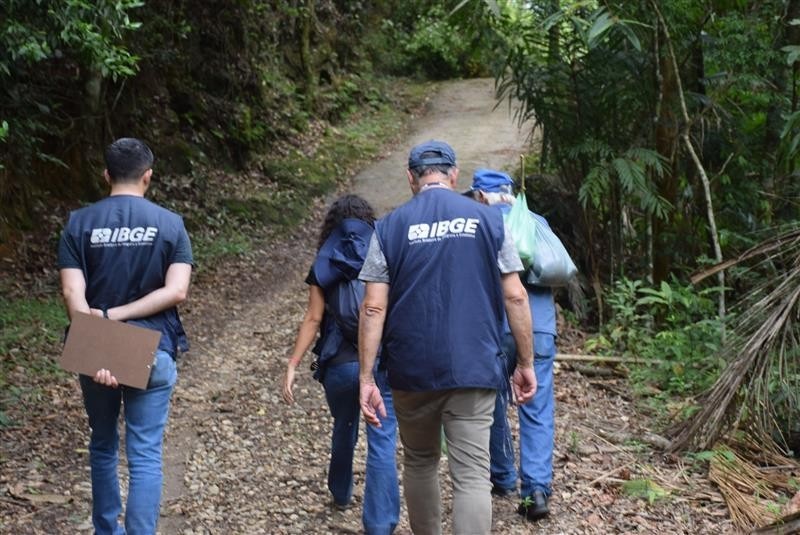External Dialogues
Mr. Pochmann establishes dialogue wiith associations in Agrishow
April 30, 2024 11h00 AM | Last Updated: April 30, 2024 05h42 PM

The IBGE's goal is to present preparations for the next Brazilian Census of Agriculture
The Brazilian Institute of Geography and Statistics (IBGE) participates this Tuesday, 30th, in the 29th edition of Agrishow, the main technology fair for agribusiness in Latin America, held in the city of Ribeirão Preto (SP), between the 29th of April and May 3rd.
At 1 pm, the president of IBGE, Marcio Pochmann, participates in a meeting with the Brazilian Agribusiness Association (ABAG), and at 3 pm, together with representatives from ABAG and Agrishow, Mr. Pochmann will hold a press conference at the ABIMAQ stand in which he will highlight the preparations for the 12th edition of the Brazilian Census of Agriculture, the largest and most important survey carried out in the country on the sector.
You can watch the press conference clicking on:https://abimaq.zoom.us/meeting/register/tZAocO-sqzopG9SZ5ilKeTl2v4mtwF7SZqUp
“IBGE’s unprecedented presence at Agrishow represents another step taken by the Institute towards listening to society, in this particular case, to the Brazilian agricultural sector. At the same time, the IBGE is preparing the 12th Census of Agriculture, which will allow us an analysis of a sector as dynamic as the agricultural sector in Brazil, over the last hundred years, considering that the first Census of Agriculture a was carried out in 1920”, stated the president of the IBGE, Marcio Pochmann.
The Census of Agriculture, carried out by the Brazilian Institute of Geography and Statistics (IBGE), is the main and most comprehensive statistical and territorial investigation into the country's agricultural production. It aims at obtaining information about the structure, dynamics and level of production of Brazilian agricultural activity.
Its results make it possible to evaluate public policies such as, for example, land redistribution. They also allow studies regarding the expansion of agricultural frontiers, the production dynamism driven by technological innovations, and they enrich the production of environmental indicators. They also provide reviews of transformations arising from the process of restructuring and adjustments in the economy and their impact on the sector.


